Home>Garden Essentials>When To Seed Grass In Tennessee


Garden Essentials
When To Seed Grass In Tennessee
Modified: March 16, 2024
Discover the best time to seed grass in your Tennessee garden and achieve a lush, green lawn. Expert tips and advice for optimal results.
(Many of the links in this article redirect to a specific reviewed product. Your purchase of these products through affiliate links helps to generate commission for Storables.com, at no extra cost. Learn more)
Introduction
Welcome to Tennessee, the land of beautiful landscapes and lush green gardens! If you’re a homeowner or a gardening enthusiast in Tennessee, you know how important it is to have a healthy and vibrant lawn. One of the key steps in achieving that is seeding your grass properly. Whether you’re starting from scratch or looking to improve the existing grass, understanding the best time and techniques for seeding grass in Tennessee is crucial.
Before we dive into the details, let’s take a moment to understand the climate in Tennessee. Tennessee experiences a humid subtropical climate with hot summers and mild winters. The state’s diverse geography brings variations in temperature, precipitation, and soil conditions. It’s important to choose the right type of grass that can thrive in the specific region of Tennessee where you reside.
When it comes to grass varieties, Tennessee offers a range of options suitable for different climatic zones within the state. Warm-season grasses like Bermuda grass, Zoysia grass, and Centipede grass thrive in the hot and humid conditions of Tennessee summers. On the other hand, cool-season grasses like Fescue, Kentucky bluegrass, and Ryegrass are more suitable for the cooler winters and milder summers of the region.
Before you start seeding your lawn, it’s essential to consider a few factors. Firstly, assess the amount of sunlight your lawn receives. Certain grass types require full sun, while others can tolerate partial shade. Secondly, evaluate the soil type and quality in your area. Different grass varieties have different soil requirements. Lastly, consider the level of foot traffic your lawn will experience. Some grasses are more resilient and can withstand heavy use, while others are more delicate.
Now that you have a good understanding of the climate and grass types suitable for Tennessee, let’s dive into the best time to seed grass in this region. Timing is crucial when it comes to successful grass seeding. The climate and weather conditions at different times of the year can have a significant impact on the germination and establishment of grass seeds.
In Tennessee, the ideal time to seed grass varies depending on whether you’re working with warm-season or cool-season grasses. Warm-season grasses should be seeded in late spring to early summer when soil temperatures reach around 70°F or higher. This timing allows the grass seeds to germinate and establish before the peak of summer heat. For cool-season grasses, the best time to seed is in early fall. The cooler temperatures and increased rainfall during this time provide optimal conditions for seed germination and establishment.
Key Takeaways:
- Choose the right grass for your Tennessee lawn based on sunlight, soil, and foot traffic. Warm-season grasses thrive in hot summers, while cool-season grasses are better for milder winters.
- Timing is crucial for successful grass seeding in Tennessee. Late spring to early summer is ideal for warm-season grasses, while early fall is best for cool-season grasses.
Read more: When To Plant Grass Seed In Tennessee
Understanding the Climate in Tennessee
Before embarking on any gardening project, it is essential to have a good understanding of the climate in your region. In the case of Tennessee, the state experiences a humid subtropical climate, which is characterized by hot, humid summers and mild winters. However, due to its diverse geography, Tennessee’s climate can vary across different regions of the state.
It is important to note that Tennessee is divided into three main climatic regions: West Tennessee, Middle Tennessee, and East Tennessee. West Tennessee, located in the western part of the state, experiences slightly milder winters and hotter summers compared to the other regions. Middle Tennessee, which includes Nashville and the surrounding areas, has a moderate climate with relatively mild winters and warm summers. East Tennessee, on the other hand, is known for its mountainous terrain and experiences cooler temperatures, especially in higher elevations.
When it comes to gardening and landscaping, understanding the specific climate of your region is crucial in determining the type of grass that will thrive in your lawn. In general, Tennessee’s climate is ideal for both warm-season and cool-season grasses, allowing homeowners to choose from a wide range of options.
Warm-season grasses are best suited for the hot and humid summers that Tennessee experiences. Some popular warm-season grass varieties include Bermuda grass, Zoysia grass, and Centipede grass. These grasses have the ability to withstand the scorching heat and still maintain their vibrant green color. They have a high tolerance for drought and can handle heavy foot traffic, making them an excellent choice for lawns that receive a lot of activity.
Cool-season grasses, on the other hand, are better suited for the cooler winters and milder summers of Tennessee. Fescue, Kentucky bluegrass, and Ryegrass are common cool-season grasses that thrive in this climate. These grass varieties are more shade-tolerant and can maintain their green color even in partially shaded areas. They are also known for their ability to grow well in various soil types and can handle moderate foot traffic.
It is important to consider the climatic conditions specific to your region when selecting grass for your lawn. Factors such as average temperatures, rainfall patterns, and humidity levels can impact the performance and longevity of your grass. Consulting with a local garden center or seeking advice from gardening experts in your area can help you make an informed decision about the best grass variety for your Tennessee lawn.
Different Types of Grass Suitable for Tennessee
Tennessee’s climate offers an opportunity for homeowners to choose from a variety of grasses that can thrive in different regions of the state. Whether you live in West Tennessee, Middle Tennessee, or East Tennessee, there are grass options suitable for your lawn. Let’s explore some of the different types of grass that are well-suited for Tennessee’s climate.
1. Bermuda grass: Bermuda grass is a warm-season grass that thrives in the hot and humid summers of Tennessee. It has a high tolerance for heat, drought, and foot traffic, making it an ideal choice for active lawns. Bermuda grass establishes quickly and has excellent recovery capabilities. It has a medium to fine texture and forms a dense, lush carpet-like appearance.
2. Zoysia grass: Another popular warm-season grass variety for Tennessee is Zoysia grass. It is known for its ability to withstand drought, heat, and heavy foot traffic. Zoysia grass has a medium texture and forms a dense, weed-resistant turf. It is more shade-tolerant compared to Bermuda grass, making it suitable for lawns with partially shaded areas.
3. Centipede grass: Centipede grass is a low-maintenance warm-season grass that thrives in Tennessee’s climate. It has a light green color and a medium to coarse texture. Centipede grass performs best in well-drained soils and requires less fertilizer and water compared to other warm-season grasses. It is a slow-growing grass that forms a dense, low-maintenance turf.
4. Fescue grass: Fescue grass is a cool-season grass that adapts well to the moderate winters and milder summers of Tennessee. It has a medium to fine texture and offers good shade tolerance. Fescue grass is known for its deep green color and its ability to maintain its appearance even in cooler temperatures. It requires regular watering and benefits from overseeding in the fall to keep the lawn looking lush and thick.
5. Kentucky bluegrass: Kentucky bluegrass is another cool-season grass variety suitable for Tennessee lawns. It has a fine texture and forms a dense turf. Kentucky bluegrass is known for its beautiful, dark green color and excellent cold tolerance. It performs well in areas with good soil moisture and moderate temperatures. This grass is best suited for lawns that receive a moderate amount of sunlight.
6. Ryegrass: Ryegrass, both perennial and annual varieties, is commonly used in Tennessee for overseeding lawns in the fall and winter to provide year-round greenery. It is a cool-season grass that germinates quickly and has good tolerance for cold temperatures. Ryegrass has a fine texture and forms an attractive, lush turf.
When choosing the right grass for your Tennessee lawn, consider factors like sun exposure, soil conditions, and maintenance requirements. Consulting with a local nursery or landscape professional can provide valuable insight into the best grass varieties that will thrive in your specific region of Tennessee.
Factors to Consider Before Seeding Grass
Seeding grass is a significant investment of time and effort, so it’s important to consider several factors before getting started. By taking these factors into account, you can ensure the success and long-term health of your lawn. Here are some key factors to consider before seeding grass in Tennessee:
1. Sunlight: The amount of sunlight your lawn receives is a crucial factor when choosing the right grass variety. Some grasses, like Bermuda grass, require full sun to thrive, while others, like Fescue or Ryegrass, can tolerate partial shade. Observe your lawn throughout the day and determine how much sun exposure different areas receive. This will help you choose a grass variety that is well-suited to your lawn’s sun conditions.
2. Soil type and condition: Understanding your soil type and its condition is crucial for the success of your grass seeding project. Tennessee has various soil types, including clay, loam, and sandy soils. Each soil type has different drainage and nutrient-retaining properties. Performing a soil test can help determine the pH level, nutrient content, and overall health of the soil. Based on the test results, you can take appropriate measures by adding soil amendments, such as organic matter or lime, to improve soil quality and create an optimal environment for grass growth.
3. Foot traffic: Consider the level of foot traffic your lawn will endure. If you have children, pets, or frequently host outdoor gatherings, you’ll need a grass variety that can withstand heavy use. Some warm-season grasses, like Bermuda grass, can handle high traffic and recover quickly, while others, like Centipede grass, are more delicate and best suited for low-traffic areas. Select a grass variety that matches your lawn’s anticipated level of foot traffic.
4. Watering requirements: Understanding the water needs of different grass varieties is crucial for maintaining a healthy and lush lawn. Warm-season grasses, like Bermuda grass and Zoysia grass, are more drought-tolerant and require less water compared to cool-season grasses like Fescue or Kentucky bluegrass. Consider your ability to provide adequate irrigation for your chosen grass variety, especially during hot and dry periods. It’s important to establish a watering routine that meets the requirements of your grass without wasting water.
5. Maintenance level: Different grass varieties have varying maintenance requirements. Some grasses, like Centipede grass or Fescue, are known for their low-maintenance nature and require less fertilization and mowing. On the other hand, Bermuda grass or Zoysia grass may require more frequent mowing, fertilizing, and other maintenance tasks. Consider the time and effort you are willing to invest in lawn care to choose a grass variety that matches your desired maintenance level.
By considering these factors before seeding grass, you can make an informed decision and choose a grass variety that is best suited for your Tennessee lawn. Remember to consult with local experts or visit a nearby garden center for personalized advice based on your specific location and lawn conditions.
Best Time to Seed Grass in Tennessee
Selecting the right time to seed grass in Tennessee is crucial for the successful establishment and long-term health of your lawn. Timing can greatly impact the germination of grass seeds, root development, and overall growth. In Tennessee’s climate, the best time to seed grass varies depending on whether you’re working with warm-season or cool-season grasses.
For warm-season grasses, such as Bermuda grass, Zoysia grass, and Centipede grass, the ideal time for seeding is during late spring to early summer. This period typically falls between May and June, when soil temperatures have reached around 70°F or higher. Warm-season grasses thrive in the hot and humid conditions of Tennessee summers, and by seeding during this time, you allow the grass seeds to germinate and establish before the peak of summer heat.
When it comes to cool-season grasses like Fescue, Kentucky bluegrass, and Ryegrass, the best time to seed is in early fall. In Tennessee, September and October provide the optimal conditions for cool-season grass seed germination and establishment. The cooler temperatures and increased rainfall during this time create a favorable environment for rapid root development. By seeding in the early fall, cool-season grasses have enough time to establish a strong root system before winter and thrive during the milder seasons.
Seeding warm-season grasses too early in the spring can be risky, as the soil may still be too cool for proper seed germination. Similarly, seeding cool-season grasses in the spring can be challenging because the warm summer temperatures can stress the young seedlings. By adhering to the recommended seeding times, you give your grass seeds the best chance to establish successfully and thrive.
It’s worth noting that while these are the ideal times for seeding, it’s always a good idea to monitor the weather conditions before you start. Timing can be influenced by factors such as unexpected frost, excessive rainfall, or drought. Keep an eye on the local weather forecast and adjust your seeding schedule accordingly to optimize the chances of success.
Ensure that you follow proper seeding techniques and take the necessary steps to prepare the soil before seeding. This includes removing any existing debris, loosening compacted soil, and providing adequate levels of moisture and nutrients. Proper soil preparation will further enhance the success of your grass seeding efforts.
By understanding the specific timing requirements for warm-season and cool-season grasses and following recommended practices, you can achieve a healthy and thriving lawn in Tennessee. Be sure to consult local experts or resources for specific regional considerations and additional guidance based on your specific lawn conditions.
The best time to seed grass in Tennessee is in the late summer or early fall, typically between mid-August and mid-September. This allows the grass to establish before the winter and thrive in the following spring.
Read more: When Does Grass Stop Growing In Tennessee
Preparing the Soil for Seeding
Proper soil preparation is essential for the successful growth and establishment of grass seeds. Before you begin seeding your lawn in Tennessee, take the time to prepare the soil to create an optimal environment for seed germination and healthy root development. Here are some important steps to follow when preparing the soil for seeding:
1. Clear the area: Start by removing any existing vegetation, including weeds, grass, and debris, from the area where you plan to seed. Use a rake or a specialized lawn dethatcher to loosen and remove dead grass and other materials. Clearing the area will eliminate competition for nutrients, sunlight, and water, allowing the newly seeded grass to establish effectively.
2. Test the soil: Performing a soil test is an essential step in understanding the nutrient content and pH level of your soil. Soil test kits are readily available at garden centers or through your local agricultural extension office. The results will provide valuable information on the soil’s fertility and enable you to make necessary adjustments before seeding. Based on the test results, you may need to add lime to adjust the pH level or apply fertilizer to provide the necessary nutrients for healthy grass growth.
3. Loosen the soil: Use a garden tiller or a hand tool, such as a garden fork or a shovel, to loosen the top layer of soil. This will improve the soil’s ability to retain moisture and allow grass roots to penetrate easily. Loosening the soil will also help to break up any compacted areas, allowing for better aeration and drainage.
4. Level the surface: Ensure that the soil surface is level before seeding. Use a garden rake to smoothen out any uneven areas and remove large clumps of soil. A level surface will help in achieving an even distribution of seeds and improve the overall appearance of your lawn once the grass grows in.
5. Add organic matter: Incorporating organic matter, such as compost or well-rotted manure, into the soil can greatly improve its structure, drainage, and nutrient content. Spread a layer of organic matter over the prepared soil and use a rake to work it into the top few inches of soil. This will provide a nutrient-rich environment for the grass seeds and promote healthy root development.
6. Water the soil: Before seeding, thoroughly water the prepared soil. This will ensure that the soil is evenly moist, creating a suitable environment for seed germination. Avoid overwatering, as it can lead to soil erosion and seed displacement. Maintain adequate soil moisture throughout the germination and establishment period by watering lightly but frequently.
By following these essential steps to prepare the soil, you can create an ideal foundation for successful grass seed germination and growth. Proper soil preparation will enhance the overall health and resilience of your lawn, ensuring a lush and vibrant landscape in Tennessee.
Seeding Techniques for Tennessee Lawns
When it comes to seeding your lawn in Tennessee, employing the proper techniques can greatly increase the chances of successful grass seed germination and establishment. Whether you’re starting a new lawn from scratch or overseeding existing grass, here are some effective seeding techniques to implement:
1. Choose the right grass seed: Selecting the appropriate grass seed for your specific region and lawn conditions is essential. Consider factors such as sunlight exposure, soil type, and foot traffic when choosing the grass variety best suited for your Tennessee lawn. Consult local experts or visit a garden center to identify the recommended grass types that thrive in your area.
2. Prepare the soil: Properly preparing the soil, as discussed earlier, sets the foundation for successful seed germination. Clear the area of any debris, loosen the soil, level the surface, and incorporate organic matter to enhance nutrient availability. Ensure the soil is adequately moist before proceeding with seeding.
3. Calculate the seeding rate: Determine the appropriate seeding rate for the specific grass variety you’re using. This refers to the amount of seed required per square footage of your lawn. Consult the seed packaging or seek advice from gardening experts to determine the recommended seeding rate.
4. Broadcast spreading: For large areas, a broadcast spreader is an effective tool for evenly distributing grass seeds. Set the spreader at the recommended application rate and walk in a pattern that covers the entire area. Make multiple passes in different directions to ensure proper coverage and avoid uneven distribution.
5. Hand seeding: For smaller areas or uneven terrain, hand seeding can provide more precision and control. Use a handheld spreader or simply scatter the grass seeds evenly by hand. Work in a crisscross pattern to ensure thorough coverage and prevent clumping of seeds in concentrated areas.
6. Rake the seeds in: After broadcasting or hand seeding, use a garden rake to lightly rake the seeds into the soil. This will help improve seed-to-soil contact, ensuring better germination rates. Be gentle to avoid disturbing the soil too much, as this can displace the seeds.
7. Apply a starter fertilizer: Depending on the soil test results and grass type, applying a starter fertilizer after seeding can provide essential nutrients to support early root development and seedling growth. Follow the recommended fertilizer rate and application instructions to avoid over-fertilization.
8. Water regularly: Adequate watering is crucial for seed germination and the establishment of young grass seedlings. Keep the seeded area consistently moist by lightly watering two to three times per day, depending on soil moisture levels and weather conditions. Be cautious not to overwater, as excessive moisture can lead to fungal diseases.
9. Maintain proper care: Once the grass seed begins to germinate, continue to care for the newly seeded lawn appropriately. Gradually reduce watering frequency but increase the amount of water applied to encourage deep root growth. Follow a regular mowing schedule once the grass reaches the recommended mowing height, ensuring not to remove more than one-third of the grass blade at a time.
By following these seeding techniques, you can increase the likelihood of successful grass seed germination and the establishment of a healthy and vibrant lawn in Tennessee. Stay patient and consistent with proper care, and soon you will enjoy the beauty and lushness of your newly-seeded lawn.
Caring for Newly Seeded Grass
After seeding your lawn in Tennessee, it is crucial to provide proper care to ensure successful germination and the establishment of healthy grass seedlings. Caring for newly seeded grass involves maintaining adequate moisture, avoiding excess foot traffic, implementing proper mowing techniques, and providing appropriate fertilization. Here are some key steps to follow when caring for newly seeded grass in Tennessee:
1. Watering:
- Water daily: Keep the seeded area consistently moist by watering lightly once or twice a day, depending on the weather conditions. The soil should be evenly moist, but avoid overwatering, as it can lead to pooling, seed displacement, or rot.
- Water deeply: Water deeply to encourage the young grass roots to grow deeper into the soil. This helps promote a healthier and more resilient lawn in the long run. Gradually decrease the frequency of watering as the grass seedlings start to grow and establish.
- Adjust based on weather: Adjust the watering schedule based on rainfall and temperature. You may need to water more frequently during hot, dry periods, but reduce watering during cooler or rainy spells.
2. Avoid foot traffic:
- Minimize foot traffic on the newly seeded area as much as possible, especially during the germination and early growth stages. Excessive foot traffic can damage the delicate young grass seedlings and disrupt their establishment.
- Place temporary barriers or signs to restrict access to the newly seeded area. This will help protect the emerging grass and allow it to establish without disturbance.
3. Proper mowing techniques:
- Wait until the grass reaches the recommended mowing height before the first mowing. This ensures that the grass seedlings have enough time to establish a strong root system before being cut.
- Set the mower blades to a higher setting and gradually reduce the cutting height over time. Avoid cutting more than one-third of the grass blade at a time to prevent stress on the newly seeded grass.
- Use a sharp mower blade to avoid tearing or damaging the young grass blades. Dull blades can create ragged cuts, leading to increased stress and susceptibility to diseases.
4. Fertilization:
- Wait until the grass seedlings have been mowed at least three times before applying any fertilizer. This gives the young grass enough time to establish a strong root system.
- Perform a soil test to determine the appropriate type and amount of fertilizer for your specific lawn. This will ensure that you provide the necessary nutrients without overfertilizing, which can cause burn or damage to the grass.
- Apply a balanced, slow-release fertilizer according to the recommended rate and timing. Follow the package instructions and water the lawn after fertilization to allow proper nutrient absorption.
5. Weed control:
- Monitor the newly seeded area closely for any weed growth. Weeds can compete with the grass seedlings for nutrients, sunlight, and moisture, inhibiting their healthy establishment.
- Use appropriate weed control methods, such as hand-pulling or spot treatment with herbicides specifically labeled for use on newly seeded lawns. Be cautious when using herbicides and strictly follow the instructions to prevent damage to the young grass.
By following these care tips for newly seeded grass, you are nurturing the growth and development of a healthy and vibrant lawn in Tennessee. Remember that consistency and patience are key as the grass gradually establishes itself. With proper care, your newly seeded grass will eventually flourish into a beautiful and resilient lawn.
Common Challenges in Seeding Grass in Tennessee
Seeding grass in Tennessee can present some challenges due to the state’s diverse climate and soil conditions. It’s important to be aware of these common challenges and take appropriate measures to overcome them for successful grass seed germination and establishment. Here are some of the challenges you may encounter when seeding grass in Tennessee:
1. Hot and dry summers: Tennessee experiences hot and humid summers, which can pose challenges to newly seeded grass. High temperatures and drought conditions can stress the young seedlings and hinder their growth. To overcome this challenge, ensure your lawn receives proper irrigation, provide shade if possible, and avoid mowing too short, as longer grass retains moisture better.
2. Weeds competition: Weeds can be persistent in Tennessee lawns and compete with grass seedlings for essential resources like nutrients, sunlight, and water. It’s important to implement proper weed control measures to prevent weed growth and give the grass seedlings a better chance to establish. Hand-pulling weeds or using selective herbicides labeled for use on newly seeded lawns can help mitigate this challenge.
3. Soil erosion: Tennessee’s varied topography may cause soil erosion, especially on sloped areas. Heavy rain or improper watering can wash away the top layer of soil, along with the grass seeds. To address this challenge, consider using erosion control measures such as erosion control blankets, straw mulch, or terracing techniques to stabilize the soil and prevent erosion during the crucial germination and establishment stages.
4. Soil compaction: Compacted soil can hinder seed germination and stifle root growth. Tennessee lawns may suffer from soil compaction due to heavy foot traffic, machinery, or clay-rich soil. Before seeding, make sure to aerate the soil, especially in high-traffic areas, to alleviate compaction and allow for proper root development. Aerating will also improve water and nutrient absorption.
5. Pests and diseases: Tennessee is home to various pests and diseases that can pose a threat to newly seeded grass. Grub worms, armyworms, and fungal diseases are common enemies of healthy lawns. Monitor your lawn regularly for signs of pests or diseases and take appropriate measures, such as using insecticides or fungicides recommended for use on young grass seedlings in Tennessee.
6. Poor soil quality: Some areas in Tennessee may have poor soil quality, such as clay soil with poor drainage or low nutrient content. Conducting a soil test prior to seeding is crucial for understanding the soil’s deficiencies and making appropriate amendments. Adding organic matter, such as compost or well-rotted manure, can improve soil structure, water-holding capacity, and nutrient levels.
7. Inconsistent weather patterns: Tennessee’s climate can be unpredictable, with variations in rainfall and temperature. Sudden storms or extended drought periods can impact grass seed germination and growth. Monitoring weather patterns and adjusting watering schedules accordingly is crucial to providing adequate moisture and optimal conditions for the newly seeded grass.
By being aware of these common challenges and implementing appropriate strategies, you can overcome obstacles and achieve successful grass seeding in Tennessee. Sustained care, proper irrigation, weed control, and soil management practices will help your newly seeded grass thrive and establish a healthy, vibrant lawn.
Read more: When To Plant Fescue Grass In Tennessee
Conclusion
Seeding grass in Tennessee requires careful consideration of the state’s climate, soil conditions, and grass varieties that thrive in the region. By understanding these factors and following proper techniques, you can establish a healthy and vibrant lawn that can withstand the unique challenges faced in Tennessee.
First, it is essential to understand the climate of Tennessee and its regional variations. The state experiences a humid subtropical climate with hot summers and mild winters. Different regions within Tennessee, such as West Tennessee, Middle Tennessee, and East Tennessee, may have specific climate variations that should be taken into account when selecting the right grass seed.
Choosing the appropriate grass variety is crucial for successful grass seeding in Tennessee. Warm-season grasses like Bermuda grass, Zoysia grass, and Centipede grass excel in the hot and humid conditions of Tennessee summers, while cool-season grasses like Fescue, Kentucky bluegrass, and Ryegrass are better suited for the milder winters and moderate summers.
Before seeding, consider important factors like sunlight exposure, soil type, foot traffic, and water requirements. These considerations will ensure you select the right grass variety that can thrive in your specific lawn conditions.
Proper soil preparation is essential for successful grass seed germination and establishment. Clear the area of debris, test and amend the soil if needed, and ensure it is adequately moist before seeding. By following these steps, you create an optimal environment for the seeds to take root and grow into a healthy lawn.
Choose the appropriate time to seed based on whether you’re working with warm-season or cool-season grasses. Late spring to early summer is ideal for warm-season grasses, while early fall is best for cool-season grasses. Timing is critical for successful seed germination and growth.
Caring for newly seeded grass involves proper watering, avoiding excess foot traffic, implementing correct mowing techniques, applying fertilizer when necessary, and controlling weeds. By providing consistent care and following recommended practices, you can foster the growth and development of a healthy and vibrant lawn in Tennessee.
Although there may be challenges in seeding grass in Tennessee, such as hot summers, weeds, soil erosion, pests, and diseases, proper management and vigilance can help overcome these obstacles. By understanding and proactively addressing these challenges, you can enjoy the beauty of a thriving lawn.
In conclusion, seeding grass in Tennessee requires careful planning, proper techniques, and ongoing maintenance. By selecting the right grass variety, preparing the soil adequately, and providing the necessary care, you can establish a lush and resilient lawn that enhances the beauty of your Tennessee landscape. With patience and consistency, your efforts will be rewarded with a healthy, vibrant, and enjoyable outdoor space.
Frequently Asked Questions about When To Seed Grass In Tennessee
Was this page helpful?
At Storables.com, we guarantee accurate and reliable information. Our content, validated by Expert Board Contributors, is crafted following stringent Editorial Policies. We're committed to providing you with well-researched, expert-backed insights for all your informational needs.


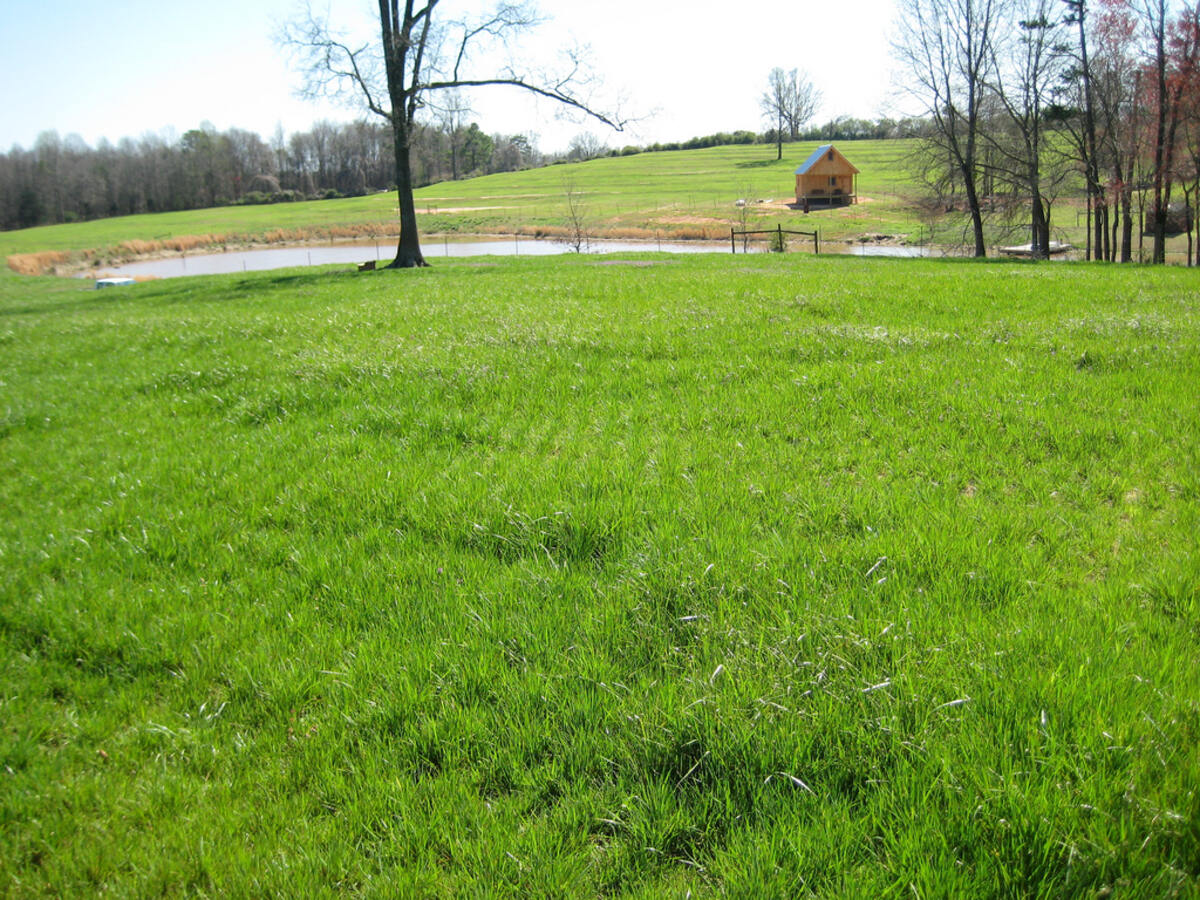

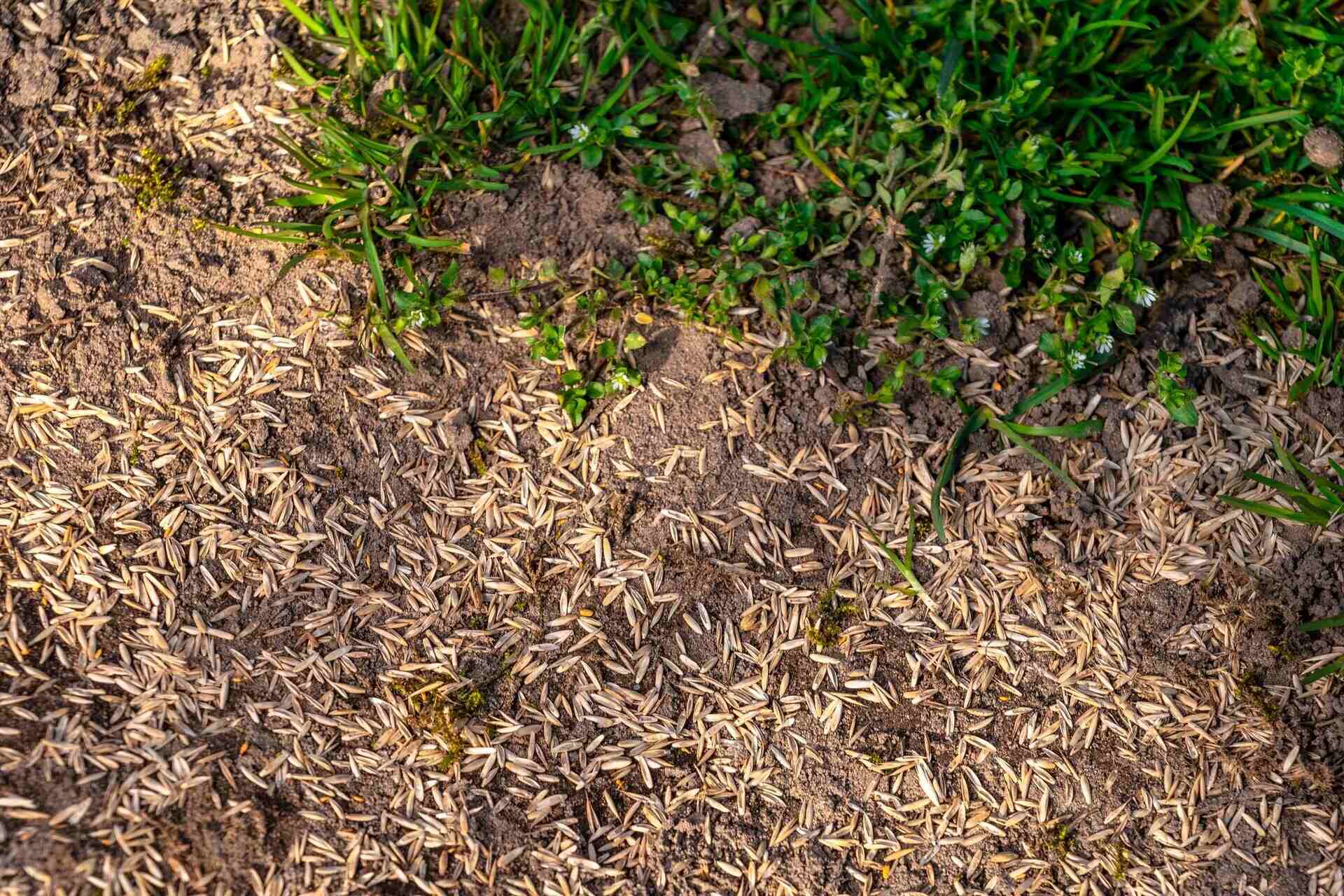

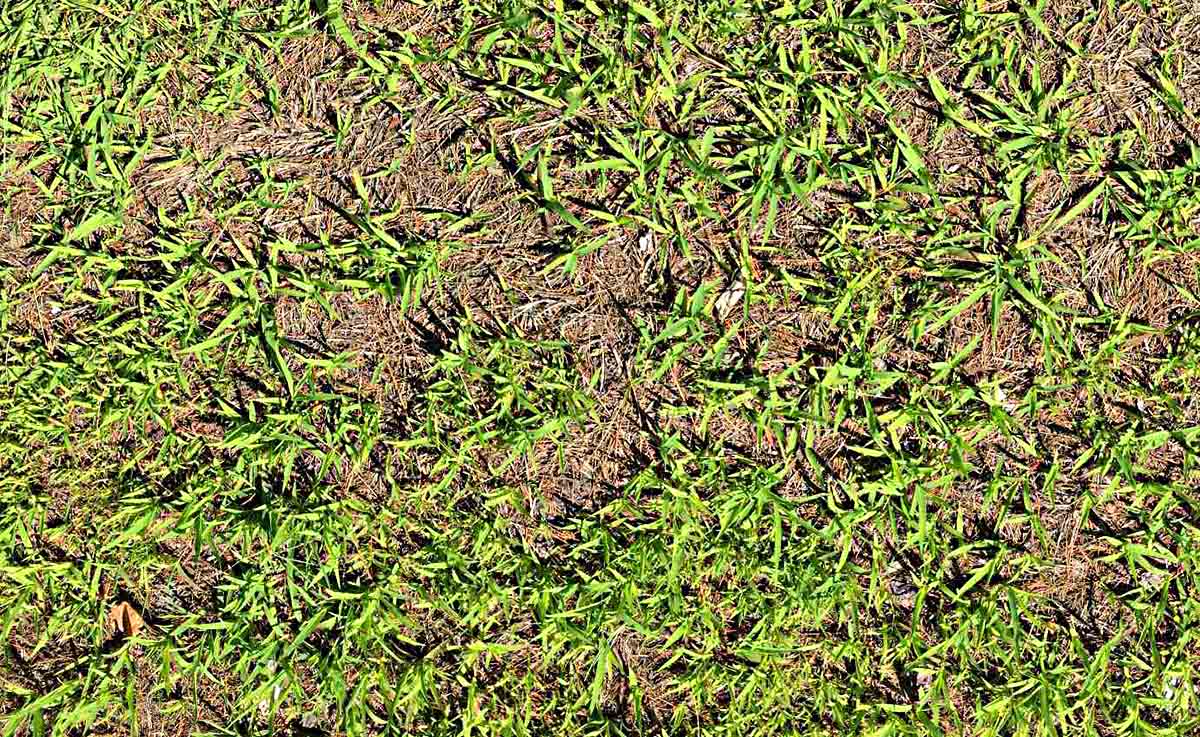

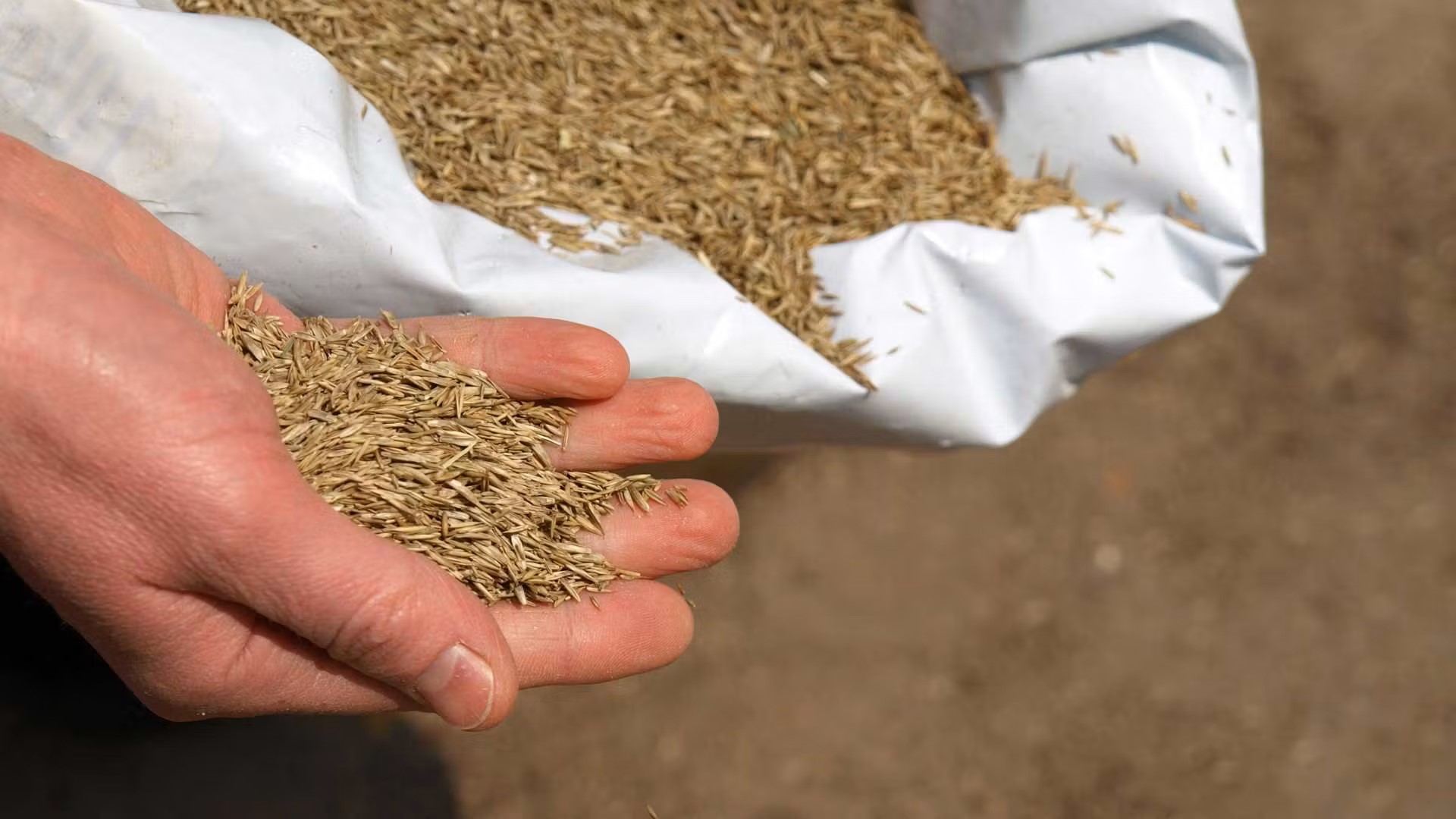

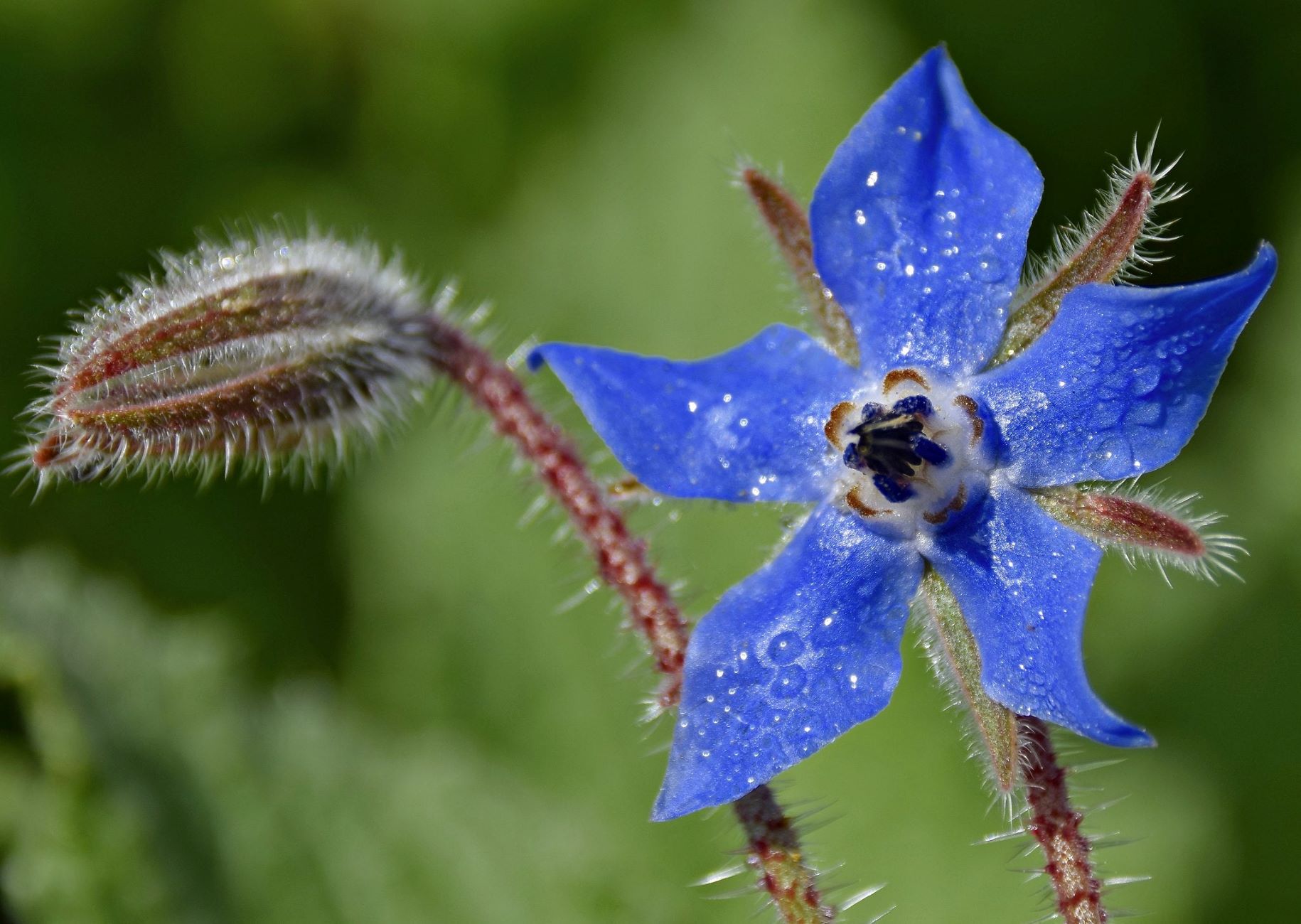

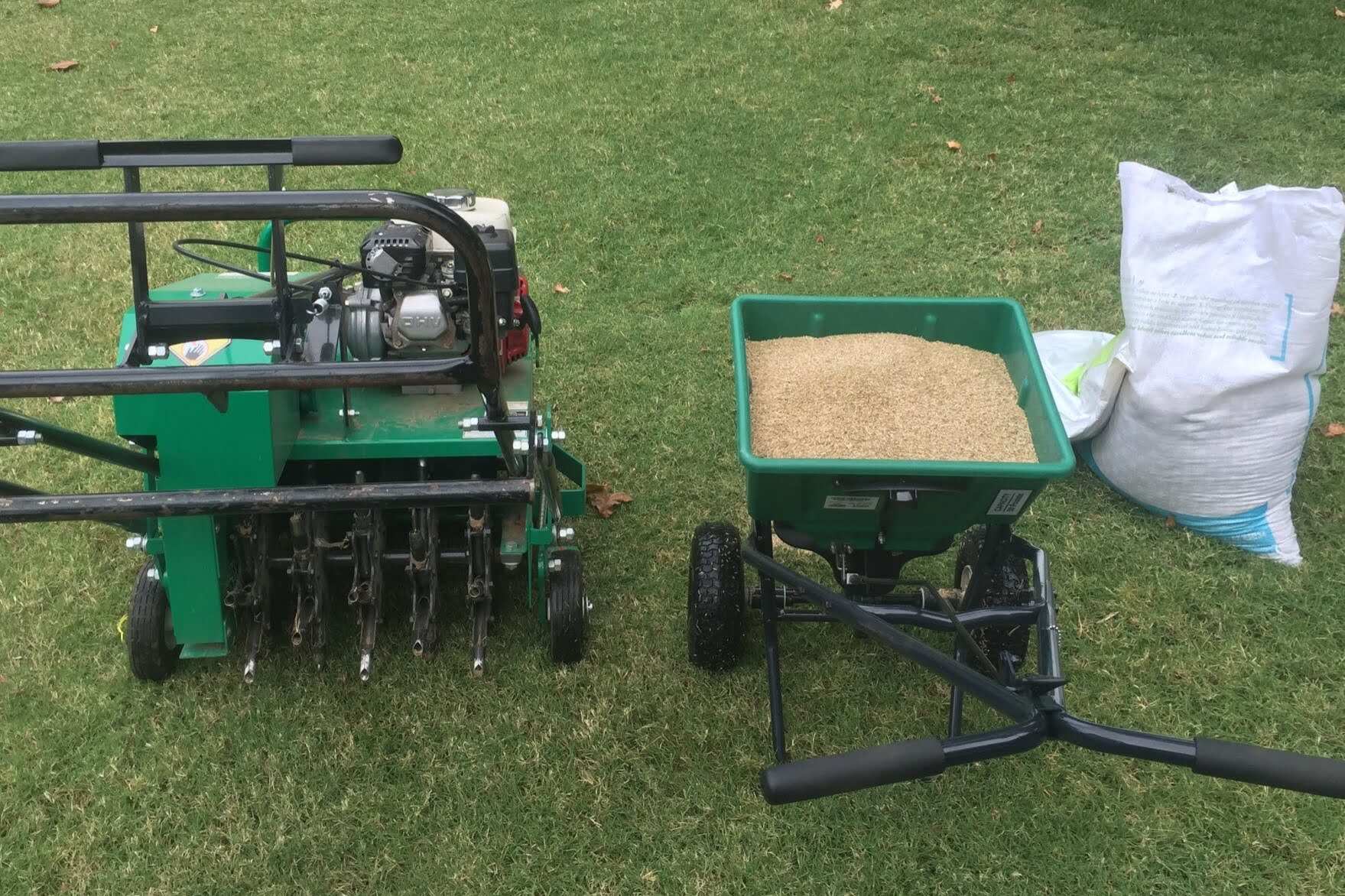

0 thoughts on “When To Seed Grass In Tennessee”